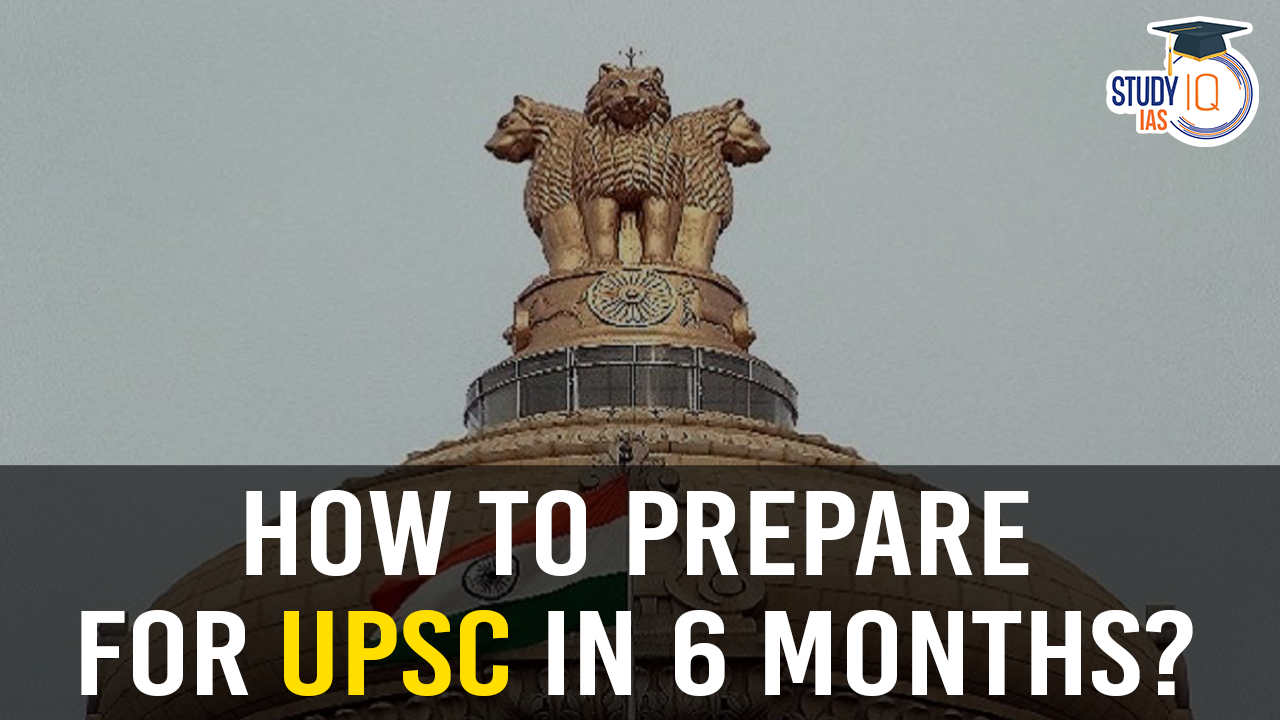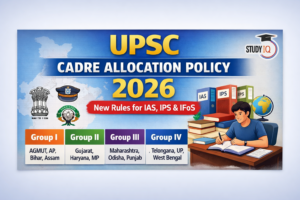Table of Contents
Union Public Service Commission ( UPSC) conducts the UPSC CSE Exam annually to select officials for the Indian government. Preparing for the UPSC exam, one of the most challenging competitive exams in India, demands dedication, strategic planning, and consistent effort. This article provides a detailed roadmap for aspirants to make the most of their six-month preparation window and increase their chances of success.
UPSC CSE Exam Overview
Before diving into preparation, it’s crucial to understand the structure and requirements of the UPSC exam. The exam consists of three stages: Prelims, Mains, and the Interview. The Prelims stage tests candidates’ knowledge of general studies and CSAT (Civil Services Aptitude Test), while the Mains stage assesses deeper understanding and analytical skills through written papers. The Interview stage evaluates candidates’ personality, communication skills, and suitability for a career in civil services.
Creating a Study Plan
A well-structured study plan is the cornerstone of effective UPSC preparation. Here’s how to create one:
- Syllabus Analysis: Begin by thoroughly analyzing the UPSC syllabus for both Prelims and Mains. Identify the areas that require more focus and prioritize them in your study plan.
- Subject-wise Allocation: Divide your study time among the various subjects such as History, Geography, Polity, Economy, Environment, Science and Technology, and Current Affairs. Allocate more time to areas where you feel less confident.
- Daily, Weekly, and Monthly Targets: Break down the syllabus into manageable chunks and set realistic targets for daily, weekly, and monthly study. Ensure a balance between covering new topics and revising previously studied ones.
- Revision Strategy: Revision is key to retention. Allocate dedicated time for regular revision of both static and current affairs topics. Plan multiple revisions to reinforce learning.
Study Materials and Resources
Selecting the right study materials and resources is crucial for effective preparation. Here’s what you need:
- NCERT Books: Start with NCERT books for basic concepts and fundamental understanding of core subjects.
- Standard Reference Books: Refer to standard reference books recommended by experts for in-depth study of each subject.
- Current Affairs Sources: Stay updated with current affairs through newspapers, magazines, government reports, and online platforms. Compile important events, issues, and developments for revision.
- Online Platforms and Test Series: Utilize online platforms offering video lectures, study materials, and mock test series for comprehensive preparation. Join a reputable test series to practice answering questions under exam-like conditions.
Strategic Approach for Prelims and Mains
Since both Prelims and Mains require different preparation strategies, it’s essential to tailor your approach accordingly:
Prelims Preparation
-
- Focus on covering the entire syllabus comprehensively.
- Solve previous years’ question papers and participate in mock tests regularly.
- Pay special attention to current affairs, as a significant portion of questions are based on recent events.
- Practice time management and develop shortcuts for solving questions.
Mains Preparation
-
- Dive deeper into each subject and develop a nuanced understanding.
- Emphasize answer-writing practice to enhance analytical skills and improve writing speed.
- Create structured notes for quick revision during the exam.
- Practice writing essays, and develop a clear, concise, and coherent writing style.
- Revise optional subject thoroughly, focusing on understanding concepts and solving previous years’ question papers.
UPSC Preparation in 6 Months: Timetable
| Month | Week | Tasks |
|---|---|---|
| Month 1 | Week 1 |
|
| Week 2 |
|
|
| Week 3 |
|
|
| Week 4 |
|
|
| Month 2 | Week 1 |
|
| Week 2 |
|
|
| Week 3 |
|
|
| Week 4 |
|
|
| Month 3 | Week 1 |
|
| Week 2 |
|
|
| Week 3 |
|
|
| Week 4 |
|
|
| Month 4 | Week 1 |
|
| Week 2 |
|
|
| Week 3 |
|
|
| Week 4 |
|
|
| Month 5 | Week 1 |
|
| Week 2 |
|
|
| Week 3 |
|
|
| Week 4 |
|
|
| Month 6 | Week 1 |
|
| Week 2 |
|
|
| Week 3 |
|
|
| Week 4 |
|
Time Management and Self-care
Effective time management and self-care are essential for maintaining productivity and overall well-being during the preparation period:
- Time Allocation: Allocate sufficient time for studying, revision, practicing mock tests, and relaxation activities.
- Healthy Lifestyle: Maintain a healthy lifestyle with regular exercise, proper nutrition, and adequate sleep to stay physically and mentally fit.
- Stress Management: Practice relaxation techniques such as meditation, yoga, or deep breathing exercises to manage exam-related stress and anxiety.
Preparing for the UPSC exam in six months is challenging but achievable with a systematic approach, disciplined study, and proper guidance. By following the strategies outlined in this article and staying focused on your goals, you can maximize your chances of success and realize your dream of serving the nation through the civil services. Remember to stay motivated, persevere through challenges, and believe in your capabilities.


 UPSC Application Form 2026 Released on 4...
UPSC Application Form 2026 Released on 4...
 UPSC Notification 2026 Out For 933 Post:...
UPSC Notification 2026 Out For 933 Post:...
 UPSC Cadre Allocation Policy 2026: New R...
UPSC Cadre Allocation Policy 2026: New R...

























